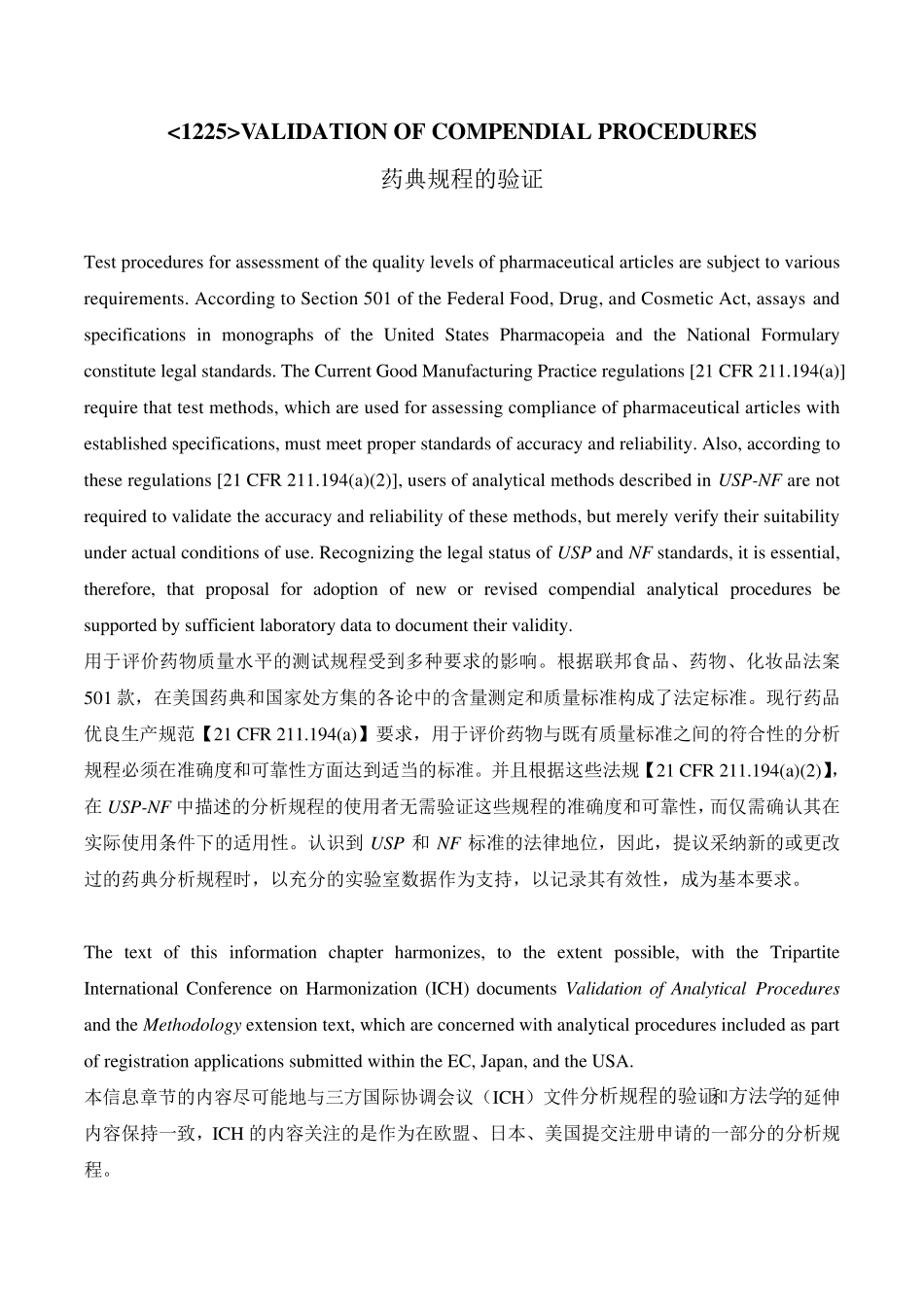<1225>VALIDATION OF COMPENDIAL PROCEDURES 药典规程的验证 Test procedures for assessment of the quality levels of pharmaceutical articles are subject to various requirements. According to Section 501 of the Federal Food, Drug, and Cosmetic Act, assays and specifications in monographs of the United States Pharmacopeia and the National Formulary constitute legal standards. The Current Good Manufacturing Practice regulations [21 CFR 211.194(a)] require that test methods, which are used for assessing compliance of pharmaceutical articles with established specifications, must meet proper standards of accuracy and reliability. Also, according to these regulations [21 CFR 211.194(a)(2)], users of analytical methods described in USP-NF are not required to validate the accuracy and reliability of these methods, but merely verify their suitability under actual conditions of use. Recognizing the legal status of USP and NF standards, it is essential, therefore, that proposal for adoption of new or revised compendial analytical procedures be supported by sufficient laboratory data to document their validity. 用于评价药物质量水平的测试规程受到多种要求的影响。根据联邦食品、药物、化妆品法案501 款,在美国药典和国家处方集的各论中的含量测定和质量标准构成了法定标准。现行药品优良生产规范【21 CFR 211.194(a)】要求,用于评价药物与既有质量标准之间的符合性的分析规程必须在准确度和可靠性方面达到适当的标准。并且根据这些法规【21 CFR 211.194(a)(2)】,在 USP-NF 中描述的分析规程的使用者无需验证这些规程的准确度和可靠性,而仅需确认其在实际使用条件下的适用性。认识到USP 和 NF 标准的法律地位,因此,提议采纳新的或更改过的药典分析规程时,以充分的实验室数据作为支持,以记录其有效性,成为基本要求。 The text of this information chapter harmonizes, to the extent possible, with the Tripartite International Conference on Harmonizat...


